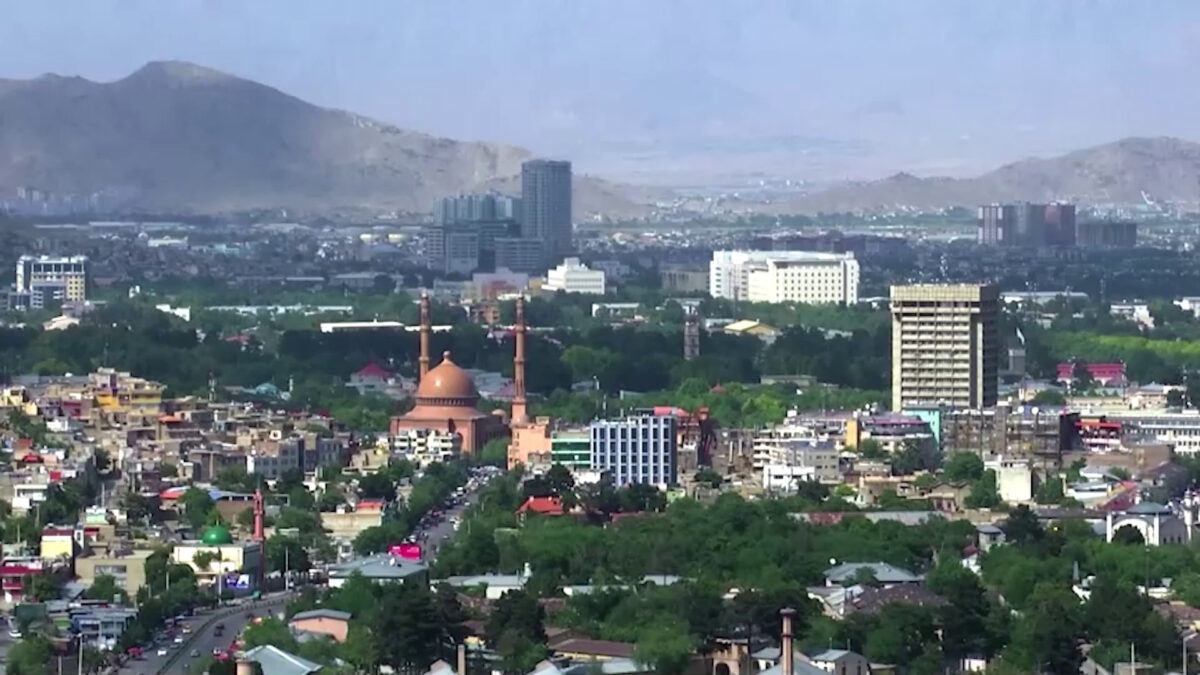KABUL, Afghanistan — A wave of violence has rocked Afghanistan, with at least six bombings reported in the past five days, including suicide attacks and explosions in Kabul, Kunduz, Samangan, Takhar, and other provinces.
The attacks, which have targeted both Taliban officials and civilians, come amid escalating tensions between militant groups operating in the country.
A suicide bombing happened outside Kabul Bank branch in Kunduz City on February 11, followed by another suicide bombing at the Taliban’s Ministry of Urban Development in Kabul on February 13. On the same day, two explosions were reported in Samangan, and another blast targeted the Taliban’s Statistics Office in Takhar.
The Freedom Front, an anti-Taliban group, claimed responsibility for an attack that it said killed three Taliban members and wounded two others. Meanwhile, the Islamic State affiliate in Afghanistan, known as ISIS-Khorasan, has continued its campaign of violence. A suicide bomber linked to the group attacked a Kabul Bank branch in Kunduz five days ago, killing both Taliban members and civilians.
Taliban have accused elements inside Pakistan of orchestrating ISIS-K attacks in Afghanistan. However, Pakistan’s Foreign Ministry has pushed back, calling ISIS-K a broader threat to regional security and urging the Taliban to take decisive action against it.
“All necessary measures to counter terrorism need to be taken by interim Afghan authorities, including against Tehrik-i-Taliban Pakistan (TTP) and ISIS, which remain listed under the 1267 U.N. Security Council sanctions regime,” said Shafqat Ali Khan, a spokesperson for Pakistan’s Foreign Ministry.
Islamabad has also raised concerns about the presence of TTP militants in Afghanistan, saying that their cross-border activities have strained relations between Pakistan and the Taliban. According to a U.N. Security Council Sanctions Monitoring Committee report, the Taliban provide TTP’s leader in Afghanistan with a monthly payment of $43,000.
The U.N. report also states that the Taliban have mobilized various militant groups—including TTP, the East Turkistan Islamic Movement, the Turkistan Islamic Party, and Ansarullah—to combat ISIS-K. However, the document also highlights ongoing ties between the Taliban and Al-Qaeda. It alleges that Al-Qaeda members have received Afghan national ID cards and passports, with some residing in Kabul while their leadership operates across multiple provinces.
Taliban have dismissed concerns about militant activity within their borders.
“There is no rogue group in Afghanistan. Our fight against ISIS has been effective, and our own forces are sufficient to combat them,” said Zabihullah Mujahid, the Taliban’s chief spokesperson.
However, critics argue that the Taliban’s claims of stability do not align with the reality on the ground.
“What the Taliban take pride in today—claiming that they have secured Afghanistan—is not true,” said Arif Rahmani, a former Afghan parliament member. “Suicide attacks happen. Assassinations occur. The Taliban themselves execute and kill many people, robbing the public of their psychological security.”
Despite the Taliban’s insistence that they have control, the recent wave of attacks underscores the persistent instability in Afghanistan, with multiple armed groups continuing to operate within its borders.





